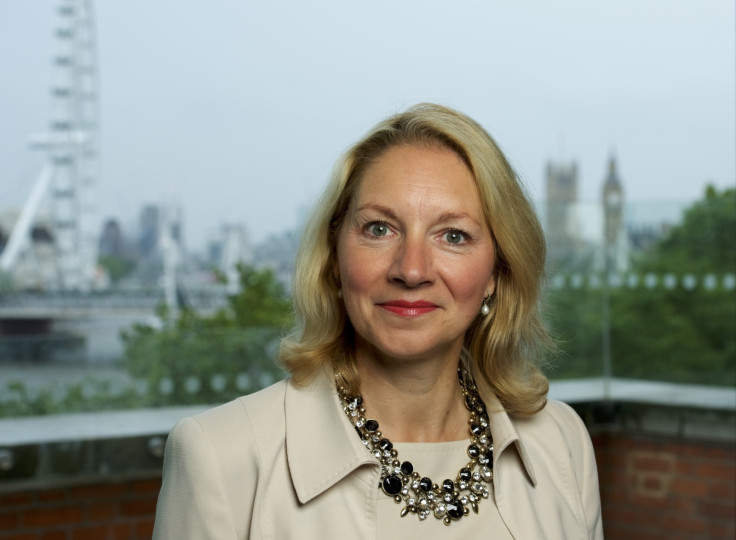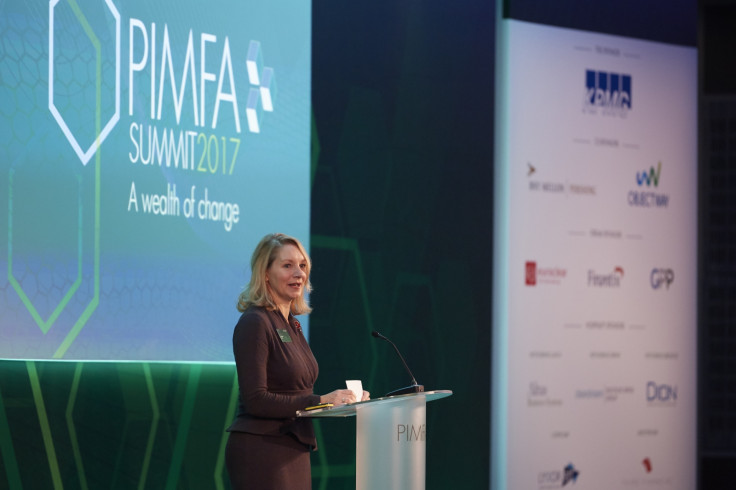London's clout as a global business hub won't be hit by Brexit, says PIMFA boss
Liz Field, chief executive of investment management lobby group, tells IBTimes UK the British capital is where the "world's business happens."
The City of London's status as the world's leading business hub would not be diminished by Britain's impending exit from the European Union in March 2019, according to the boss of one of the country's leading financial lobby groups.
Liz Field, chief executive of the Personal Investment Management and Financial Advice Association (PIMFA), a group created out of the recent merger of the Wealth Management Association (WMA) and the Association of Professional Financial Advisers (APFA), told IBTimes UK: "London is where the world's business happens. Brexit won't change that.
"The operating climate might look slightly different post-Brexit. There might be procedural workarounds, new legislative frameworks to handle and a few humps to overcome. However, the 'City' is the city, and it's where people from all walks of life want to come and do business."
From the wealth management industry's perspective, the UK, and by default London, is the world's second-biggest hub with only the US ranking higher in transactional terms.
"How Brexit negotiations pan out is a cause for concern, but from the point of view of our members, I'd say the prospect of a second Scottish referendum, and keeping a unified UK financial services market, is more of a worry than what may or may not happen come 2019."

Dropping the 'W' word
Field says the rise of populism, near permanently low interest rates, emergence of extreme left and far right schools of thought and global geopolitical tensions make for a "pretty confusing" political climate in which to run an industry association like hers.
"Reality is, now more than ever, we have much more to talk to the government and the opposition about fostering a savings and investment culture. We got rid of the 'wealth' word out of our association's title, because it takes some explaining to people why our members and ourselves are not just about the ultra high net worth private investors.
"Yes, of course we do have them, but we also have members looking after clients with considerably less money than that; for instance investment pots of £30,000 from a pension fund because of the recently given pension freedoms. You are going to need some advice on what you are going to do about that, and it's where our members come in."
It all bottles down to getting the average individual to manage their "balance sheets" where the need for reaching out to financial advisers has never been greater and it's not just about "looking after millionaires."
Better together via a merger
This changing nature of business was one of the key drivers of the WMA and APFA merger in June 2017, Field says. "Both associations saw wealth management moving to a much more holistic proposition, with financial planning and advice as part of that on behalf of the client. We needed to cover the entire spectrum of wealth management, and the best way to do that is by merging the two trade associations.
"The bigger you are in terms of members, the bigger your voice is. So 2,000 corporate members gives us a pretty powerful voice. In terms of private investment management, we were already on the map, but adding financial advice component was pretty big from that point of view."
Given the current operating climate, Field says the merged PIMFA is approaching the next 12 months with a degree of nervousness intertwined with cautious optimism.
"That's because there are so many unknowns. Our message to Brexit negotiators is a simple one - the man on the street needs access to funds, and funds need access to people and markets; pragmatic negotiations will boost the process; not the ongoing one step forward and two steps back approach we are getting from London and Brussels."
Away from Brexit, the other big thing for PIMFA is compliance with the second Markets in Financial Instruments Directive (MiFID II) and General Data Protection Regulation (GDPR) with the industry set for a shake-up.
"There is a lot to do and we have to get our heads down. The next four quarters are going to be pretty busy, so what we are asking the regulator for is - no more dramatics, no more reviews, no knee jerk reactions, as firms want to get compliance with the new directives spot on, and we need some headspace."

On the investment culture, technology and 'robo-advisers'
The UK also needs to promote a culture of savings and investment, with politicians and policymakers of all stripes coming together alongside the wealth management industry to educate people about thinking for the longer term, Field says.
"This line of thinking will underpin PIMFA's new emerging vision and chart our pathway through to 2025. At present, neither bank accounts nor cash ISAs are doing much for savers. Stock ISAs, deemed risky by some, offer better yields. Yet, two-thirds of all ISA assets continue to be held in cash ISAs. So we need to change individual attitudes to risk.
"Investment management is underpinned by risk and we need to educate people on how not to get spooked because the markets are fluctuating. We've got a big story that we've got to start saying really loudly and we'd be looking to the government to put that same message out to the public."
While changing attitudes is something the industry is keen to drive, the proliferation of artificial intelligence and digital technology is bringing about inexorable change within its operating corridors.
"The impact of technology is quite positive on the whole. We are very interested in the topic of millennials – digital natives – whom studies suggest are going to want to save and invest entirely online."
Of course, some in the industry fret whether digital platforms could do away human managers. "Technology would certainly drive efficiencies, but may not entirely replace the traditional fund manager; for when it comes to big life decisions you want someone to talk to.
"So we use the term technology-enabled advice, even cyborg-advice, but very rarely use the term robo-advice. It may be brandished about be we don't think it would replace the need for people. Furthermore, regulatory accountability also narrows down to human beings not computing systems and algorithms. Let's see what happens 10 to 15 years down the line, but the wealth management industry is not quite going to resemble the world we see in HBO television series 'Westworld' that's full of androids with artificial consciousness and human like interface!"
Decades of change management
Of course, with three decades of experience in the financial services industry, Field appears at ease with the pace of change both, within the group that she heads, as well as the wider industry it lobbies hard for.
She joined PIMFA, formerly the WMA, as Chief Executive in 2014, having previously been at the helm of associations in insurance, banking and investment management, atop various City assignments.
"I sort of fell into financial services, working in insurance, then banks and building societies, and then more broadly into running trade associations. Over the years, I've also worked for an investment management company rolling up my sleeves and getting my hands dirty."
Field also had a spell running her own business, which fitted "very well with bringing up three children" before marking a return to the City at PIMFA.
"Most of my professional journey has been about change management, turnarounds, and growing and building transitioning organisations. The WMA / PIMFA experience has been no different, needing to change the nature of the organisation to fit the needs of an evolving industry and operating climate; the sorts of challenges that I've always relished."
© Copyright IBTimes 2025. All rights reserved.




















